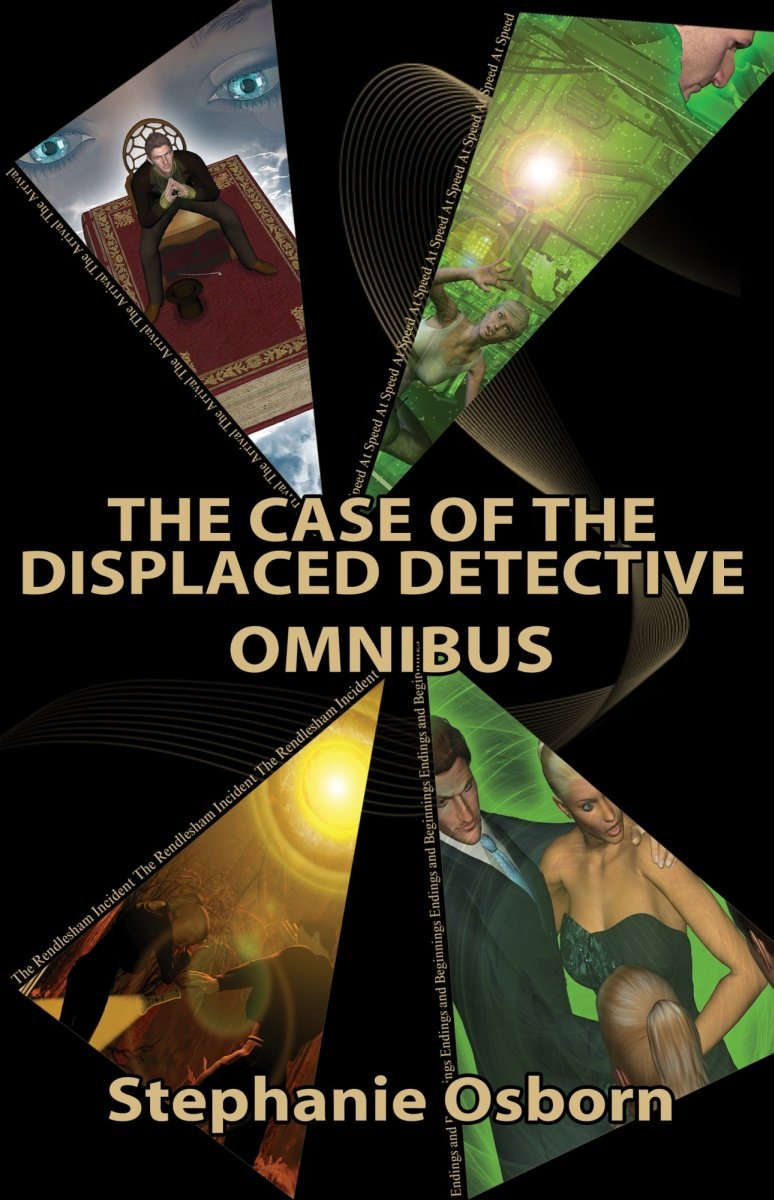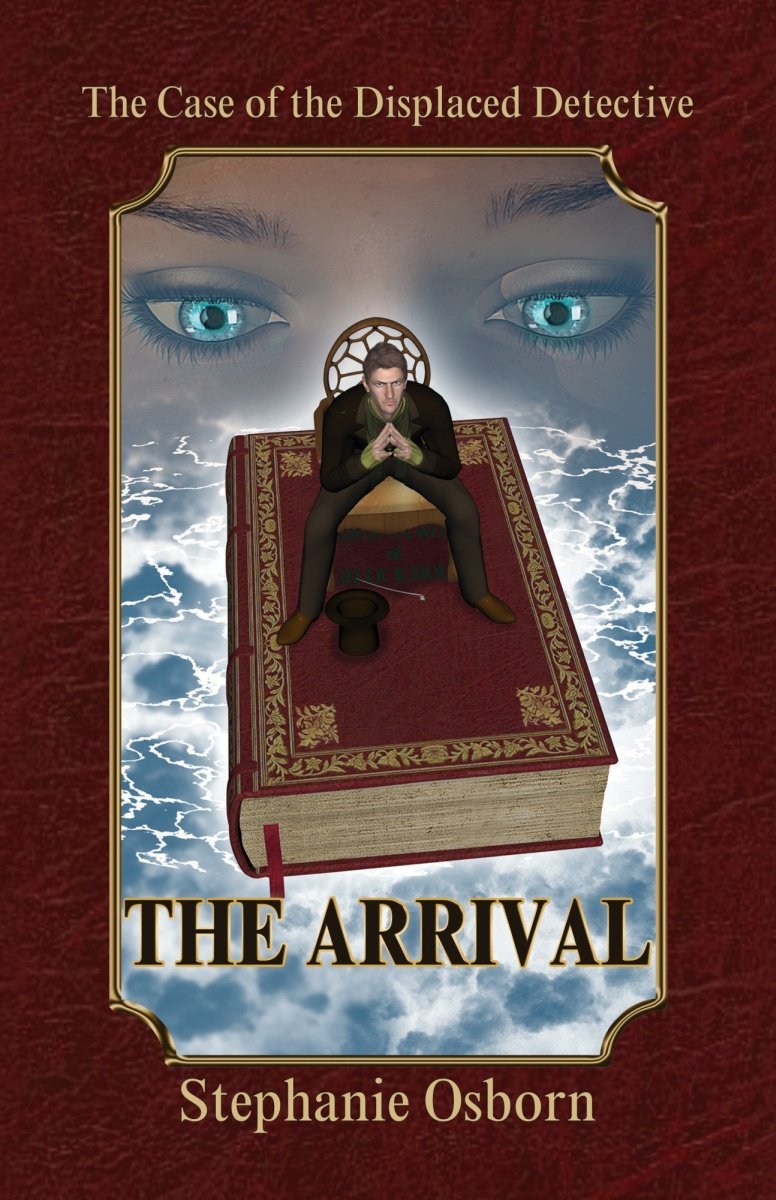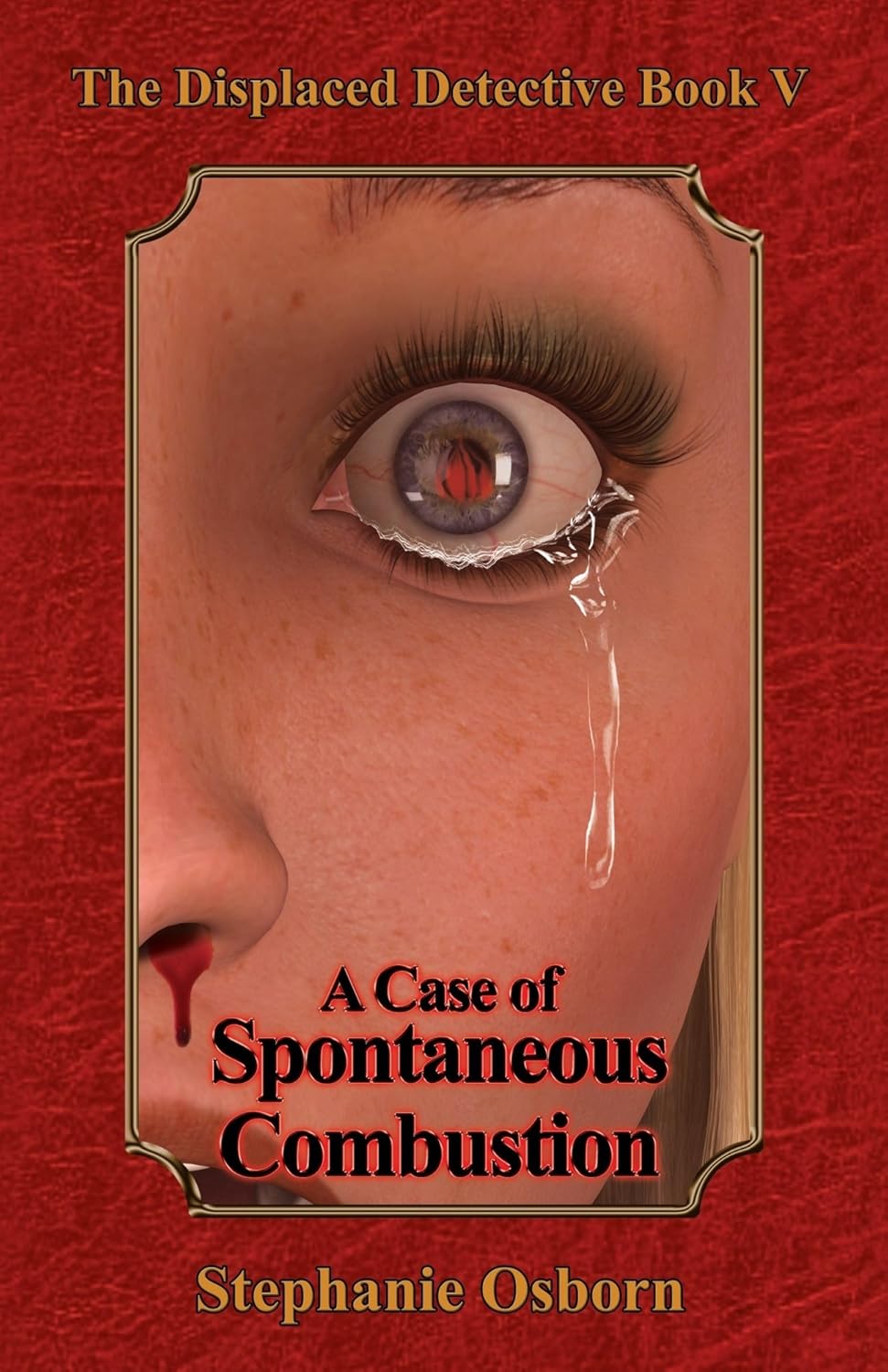http://www.stephanie-osborn.com
I suppose it's time for me to take my own turn on this topic. I've got quite a few books out there by now, with more coming, and I do have a great deal of fun playing in all these different worlds. The feedback I get from fans is amusing and thought-provoking by turns.
 For instance, many people tend to actually forget that my version of Sherlock Holmes (as found in the Displaced Detective Series) is not a real person (at least in our continuum!). A couple of years back, right after the horrific movie theater shooting in Boulder, CO, one fan sent me an email (which seems to be the preferred form of fan letter these days). You see, the shooter's name was John Holmes, and she started off wanting to know if he was perchance kin to Sherlock, and if Sherlock was upset about having such a villainous deed in the family, or at least with the same name. She caught herself partway through, evidently, and modified the letter such that she wished she could ask him those things, but it was obvious that Holmes and Chadwick were real people to her.
For instance, many people tend to actually forget that my version of Sherlock Holmes (as found in the Displaced Detective Series) is not a real person (at least in our continuum!). A couple of years back, right after the horrific movie theater shooting in Boulder, CO, one fan sent me an email (which seems to be the preferred form of fan letter these days). You see, the shooter's name was John Holmes, and she started off wanting to know if he was perchance kin to Sherlock, and if Sherlock was upset about having such a villainous deed in the family, or at least with the same name. She caught herself partway through, evidently, and modified the letter such that she wished she could ask him those things, but it was obvious that Holmes and Chadwick were real people to her.Another, more recent, fan letter is one I excerpt for publicity purposes, with permission; it was simply that good.
"It's like you took Holmes out from under a dusty glass dome in a shadowy Victorian parlor crammed with momentos[sic] and knick-knacks and gave him a new lease on life. Skye is cool too and their relationship helps make the multiverse a less lonely place."
~~Esther Willson, reader
And that was my purpose. While Holmes was so real during the time of Sir Arthur Conan Doyle that, when The Final Problem was published, Victorian men and women went into mourning, over the years since, Holmes has become something of a stereotype, I'm afraid. You can go almost anywhere in the world and show someone a silhouette of a man with a hawk nose, a pipe, and a double-brimmed cap, and s/he will respond, "Sherlock Holmes!" I wanted to lift him from that stereotype, to make him live and breathe and feel and think again, for modern readers. (And yes, I did it well before either the BBC or CBS series, or the Guy Ritchie/Robert Downey Jr. film franchise.)
 Now, as to how I build my characters, it's actually fairly simple. The great actor and portrayer of Holmes, Jeremy Brett, was fond of referring to his process of disappearing into the character as "becoming." And as I've trod the boards of the stage some little bit myself, and use a similar technique, so I modified it for use in my writing. I search within myself, my personality, for some facet that fits the type of character I am looking to create. Then I use that facet as the foundation for the character, and begin to add to it. A quirk here, an eccentricity there, a flaw, a virtue, on and on. I weight the types of "bricks" according to what sort of character I'm building: a villain will have more flaws than virtues, and a hero vice versa. Experiences in their backgrounds (and yes, I tend to fully flesh out their personal histories, even if I never use them, at least for main characters -- because you never know when something in that history will be useful in a future book) may be imagined, or may be pulled from my own experience and modified, as appropriate. Intellect, etiquette, education, family, all are taken into consideration. And by the time I'm done, I have a character.
Now, as to how I build my characters, it's actually fairly simple. The great actor and portrayer of Holmes, Jeremy Brett, was fond of referring to his process of disappearing into the character as "becoming." And as I've trod the boards of the stage some little bit myself, and use a similar technique, so I modified it for use in my writing. I search within myself, my personality, for some facet that fits the type of character I am looking to create. Then I use that facet as the foundation for the character, and begin to add to it. A quirk here, an eccentricity there, a flaw, a virtue, on and on. I weight the types of "bricks" according to what sort of character I'm building: a villain will have more flaws than virtues, and a hero vice versa. Experiences in their backgrounds (and yes, I tend to fully flesh out their personal histories, even if I never use them, at least for main characters -- because you never know when something in that history will be useful in a future book) may be imagined, or may be pulled from my own experience and modified, as appropriate. Intellect, etiquette, education, family, all are taken into consideration. And by the time I'm done, I have a character. But the character isn't really fully developed until I write him/her. There's something about recording a character's behavior that brings it alive in the mind's eye.
Now, you'll notice that I draw a lot on myself. But I should note that that's how I relate to the characters, just as we usually make friends of people that have something in common with ourselves. Even Holmes, who was created by a man who lived and died long before I was born -- because I recognize facets of myself, my psyche, the way I think, in the great detective. Pecadilloes we share, and the like. And I think this is what enables me to render him as a living, breathing human. It can be useful, in the circumstances, to simply think, "What would I do in this situation?"
"In this case the matter was simplified by Brunton's intelligence being quite first-rate, so that it was unnecessary to make any allowance for the personal equation, as the astronomers have dubbed it."~~Sherlock Holmes, The Musgrave Ritual
And so it is. Not that I mean it in an egotistical fashion; rather, I am trying to say that an ability to relate to the character in some way better enables me to adjudge what that character would do, say, or think.
I find it interesting to note that I have been accused of writing a "Mary Sue" in the character of Dr. Skye Chadwick. But in point of fact I drew no more on myself for her than I did for Holmes, and no one has ever called Holmes my Mary Sue. (It could be argued, in any case, that Watson was Doyle's "Mary Sue," if one really wanted to go there.)
 If there were ever a Mary Sue for me in my writing, it would have to be in my very first book, Burnout: The mystery of Space Shuttle STS-281. This book has two main characters, "Crash" Murphy and Mike Anders. Crash is a retired NASA flight controller turned author, and Mike is an astronomer. Sound familiar? It should, if you've read my bio. In fact if you were to take these two characters, merge them into one, and flip the gender, you would have a very close approximation to myself, saving only Crash's military experience. And in this case it was quite deliberate. That book hits very close to home for me in many respects, and even more so after the Columbia disaster occurred. Why should anyone be surprised to find that I based the main characters upon myself?
If there were ever a Mary Sue for me in my writing, it would have to be in my very first book, Burnout: The mystery of Space Shuttle STS-281. This book has two main characters, "Crash" Murphy and Mike Anders. Crash is a retired NASA flight controller turned author, and Mike is an astronomer. Sound familiar? It should, if you've read my bio. In fact if you were to take these two characters, merge them into one, and flip the gender, you would have a very close approximation to myself, saving only Crash's military experience. And in this case it was quite deliberate. That book hits very close to home for me in many respects, and even more so after the Columbia disaster occurred. Why should anyone be surprised to find that I based the main characters upon myself?They grew beyond that, of course. I think if you are a halfway decent writer and have done your proper work, then that will happen. And at some point they become real to me, so real that it might as well be that they exist in another spacetime continuum. And for all I know, they do.
So when I come back to a new book in the series, it's like going to visit an old friend. I delight in it, and hate it when I finish the book -- because that means the current visit has ended, and I have to go home.
If I've done my job properly, when you read it, you'll feel the same way.
-Stephanie Osborn
http://www.stephanie-osborn.com



No comments:
Post a Comment